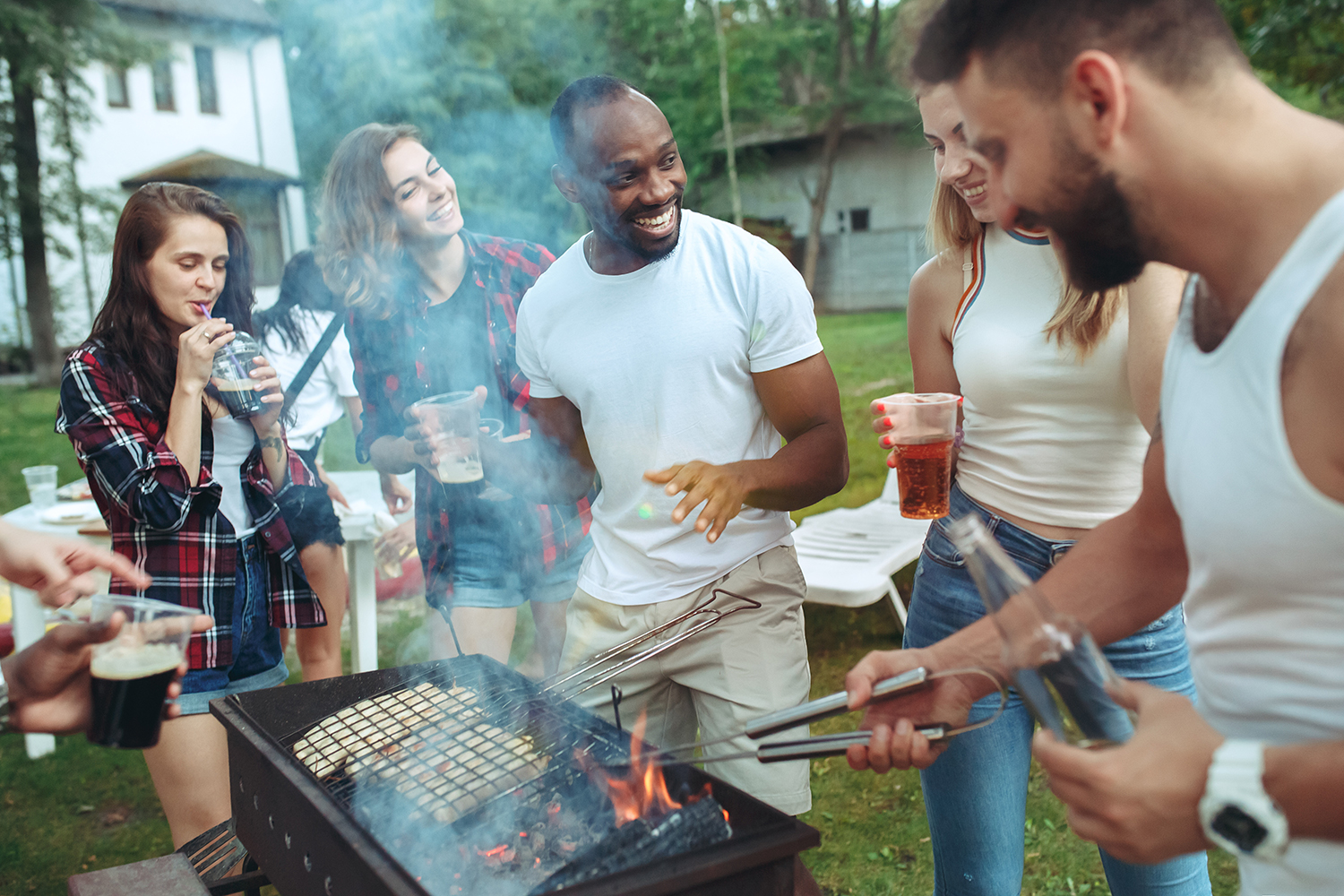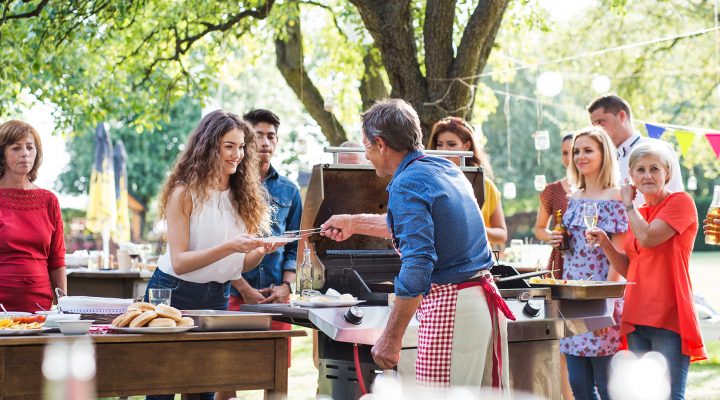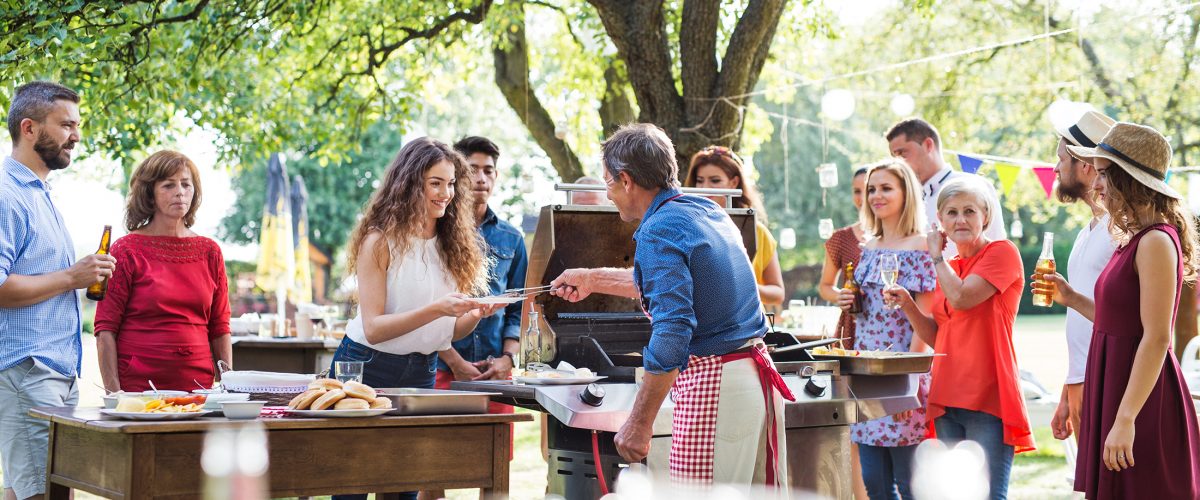There’s a strange tension in the minds of many people between the desires for independence and community.
It comes up often in conversations about churches and denominations. A church may want to be independent yet participate in the community of a denomination or family of churches.
When I was an independent fundamentalist Baptist, our community was limited to the independence of our church. We regularly spoke out against the Southern Baptists, who we feared might make us be in community with liberals financially or theologically.

Rick Pidcock
Southern Baptists lean into one or the other depending on what they want to accomplish. If they want to recruit new members through evangelization, they lean into the benefits of being part of a denominational community with large outreach programs. But if they have to deal with a sexual abuse scandal, they claim to be independent and unable to deal with the problem.
At an individual level, Baptists promote the idea of “soul liberty,” which says individuals have the freedom to decide how to interpret and apply the Bible to their lives, without being coerced by someone else or an organization. But individual Baptists also are part of the community of a church or denomination that influences how they interpret and apply the Bible.
“Sometimes individuals can wield the power of the community by attempting to force others to submit to them.”
Sometimes individuals can wield the power of the community by attempting to force others to submit to them. We see this every time the Southern Baptist Convention meets to pass their myriad of resolutions against whoever or whatever they’re opposed to.
And that’s where the tension comes in. Amid our desire for independence and community, two sides emerge. Some people respond by making “both-sides” arguments that imply both sides are exercising power over their neighbors by positioning themselves at the top of a hierarchy. They may present themselves as part of an objective third way, noticing the wrongs of everyone equally from a place of disconnected clear-headedness above it all.
But what about the people who openly embrace one side or the other, who strongly identify either as being part of a conservative or liberal community of minds?
How do those people work out the struggle between wanting to be independent from the other side, while having to be in community with the other side in certain contexts?
Some of these tensions began to clear up for me last week as I reflected on a recent piece I wrote for BNG while also experiencing Independence Day with my neighbors.
The other side is persecuting my side
The title of that recent piece was provocative: “Conservative evangelicals claim they are being persecuted by not being allowed to persecute LGBTQ foster kids.”
I didn’t write that headline, but I love it because it was a surprising yet blunt way of saying what I was arguing. By claiming religious persecution for not being allowed to disparage LGBTQ kids, conservative evangelicals are exercising the power of persecution over LGBTQ kids. It’s quite a disturbing accusation, and one I believe anyone who is thinking clearly should obviously know is true.
“I couldn’t help but notice how the other side was saying the same thing about those of us on the left.”
But as I was making my case, I couldn’t help but notice how the other side was saying the same thing about those of us on the left.
“The Biden administration is cruelly preventing countless children in the foster care and adoption system from going to loving homes just because parents are opposed to irreversible sex change procedures on kids,” U.S. Senator Jim Banks argued. “This isn’t a liberal or conservative issue. This is just plain wrong, and every sane person knows it.”
So while my perspective is that conservative evangelicals are persecuting LGBTQ kids, the perspective of conservative evangelicals is that progressives are persecuting LGBTQ kids.
The perspective of our common fear
I don’t share the above observations to make a “both sides” argument and posture myself as some third way above it all. I’m comfortable choosing the progressive side of this argument and accusing conservatives of persecuting LGBTQ kids.
But I’m also self-aware enough to admit both sides share a common fear of the other. We’re both afraid the other is trying to get us to submit to them.
And while I may think fear from the conservative side is projection of what they wish to do to my side, I can’t help but notice the similar nature of the concern. We both want to be independent and free from the coercive control of the other side. And yet, we’re part of a communal democracy where everyone on both sides gets to vote.
“We both want to be independent and free from the coercive control of the other side.”
Who are the true patriots?
After my piece came out on July 2, I began waiting for the other side to react while I was making plans for Independence Day. And during this time, I experienced the tension Mark Wingfield wrote about in his piece on reclaiming patriotism.
“The difference is whether we love our country for what it can be or whether we love it for what it has been,” he argued. “It is the promise of freedom for all that drives America, not the nostalgia of freedom for some.”
To Wingfield, those on the other side have co-opted patriotism. So he suggests those of us who lean toward the left should make the case: “It is patriotic to object to unnecessary war; it is patriotic to challenge racism; it is patriotic to demand Congress actually does its job rather than specialize in obstruction; it is patriotic to want freedom for all people; it is patriotic to welcome immigrants and help them; it is patriotic to want our children safe from gun violence; it is patriotic to oppose religious instruction in public schools; it is patriotic to fight for health care for senior adults, the poor and all those ‘less fortunate’ than us.”
So while on July Fourth many of my progressive friends were rightly citing examples of historic oppression the United States, there was a part of me that wanted to embrace the freedom and opportunity I have to move toward my neighbors who see things differently.

(123rf.com)
Being with the other side on Independence Day
The morning of July 4, our neighborhood had an Independence Day parade. Neighbors gathered with their bikes and cars decked out in red, white and blue. I wore a NASA shirt for the holiday as a way of being somewhat patriotic, but in the sense of believing in a United States that embraces science and pursues education and exploration.
As a few dozen of us walked together through the neighborhood, interacting with each other and with the other neighbors who were sitting on their lawns to wave at us, I felt conflicted.
I knew the vast majority of these people, if not all of them, were going to be voting for Trump. Many of them are likely Christian nationalists. Little do they know I’m writing against virtually everything they believe in.
“Little do they know I’m writing against virtually everything they believe in.”
But we had a nice walk and enjoyed ice cream sundaes together at the neighborhood pool afterward.
Later that evening, we were invited to a house for dinner and fireworks. As I walked up their driveway, I noticed a number of the men wearing their bright red MAGA hats. Their walls were lined with pictures of Jesus along with American flags, gun owners for Trump flags, Second Amendment flags, Don’t Tread on Me flags, flags against President Biden, and even an all-black American flag, which is a “no quarter” flag meant to signal the opposite of surrendering.
One piece at Salon describes it this way: “According to the people on TikTok and the Sun (British tabloid), the black American flag originated in the Civil War and was flown by the Confederates. It means that they will not surrender, will not take prisoners, and are willing to die for their cause. It means they will execute their enemies. Who are their enemies? Pretty much any non-conservative. You know, Democrats, Liberals, LGBTQ, BIPOC, and the vaccinated.”
In addition to all the flags, they had multiple televisions showing security video footage of every square inch of their property. To say I was out of my element and a little nervous would be an understatement.
As I stood there taking it all in and talking with one of the men, he asked me what I do.
“I write,” I told him.
“What do you write?” he asked.
I simply replied, “Articles.”
When one of my kids mentioned climate change, my heart sank. Surely, we were now going to be discovered for being the other side. But one of the women responded by saying maybe things are different now with the weather because we don’t have the dome covering the earth any more.

(123rf.com)
Living our lives and leaving each other alone
Despite having extremely different worldviews, we had a lot of fun together. The kids enjoyed swimming in the pool. We exchanged stories about college football while grilling. You could hear sounds of laughter amid the country and worship music playing in the background. We enjoyed some relaxing games of corn hole. And the fireworks they bought were way better than anything I’d ever experienced in a neighborhood setting before.
“Despite having extremely different worldviews, we had a lot of fun together.”
When one of the men and I were discussing vacations, he mentioned he really enjoyed traveling through New England. But then he added he could never live there due to politics.
He said, “We just want to live our lives and for other people to leave us alone.”
Community for wholeness, but independence from hierarchy
That’s when it dawned on me. I’m concerned these other people are planning to control me and those I care about, while they’re concerned I’m going to try to control them.
I want people of different genders, races, classes and sexual orientations to be independent from the hierarchies of straight white Christian nationalist men so they can freely pursue wholeness. And these people want to be independent from the hierarchies of progressive liberals so they can freely pursue wholeness.
There’s a sense in which we’re concerned about the same thing and in which we want the same thing. We’re concerned about being controlled. And we want to live our lives with our family and friends, but independently of others controlling us.
That said, hierarchies are very real. And Christian nationalism does indeed pose a very serious threat to our democracy.
“Both sides” of a hierarchy are not equally responsible parties.
“Both sides” of a hierarchy are on a spectrum of dehumanization.
So I cannot in good conscience act like those fighting for white supremacist power dynamics are essentially the same as those fighting for liberation. And doesn’t the fact that we all fear the coercive control of the other side show us why we all intuitively know that theologies of sacralized hierarchy are bad news and should be deconstructed?
Still, for conservatives who demonize empathy and lack self-awareness, their perspective is indistinguishable from reality.
So perhaps by recognizing our common fears of being on the underside of power, and our common desires to live our lives in community but free from the coercive control of our neighbors, maybe we could gently encourage some of our neighbors on the right to loosen their grip on sacralized patriarchy and theocracy. They may not understand why we affirm LGBTQ people. But they may understand the concern of being controlled by the other side. So perhaps in our common desire for independence, a deeper sense of community might be born.
Despite how on edge I felt at times amid all the flags and red hats on Independence Day this year, I got the sense these people on the other side really just wanted to be friends. They were more hospitable to us than anyone else has been in the neighborhood. And maybe walking toward the vulnerability of those conversations about independence and community while playing corn hole and sharing a meal are where democracy will be saved.
Rick Pidcock is a 2004 graduate of Bob Jones University, with a bachelor of arts degree in Bible. He’s a freelance writer based in South Carolina and a former Clemons Fellow with BNG. He completed a master of arts degree in worship from Northern Seminary. He is a stay-at-home father of five children and produces music under the artist name Provoke Wonder. Follow his blog at www.rickpidcock.com.


